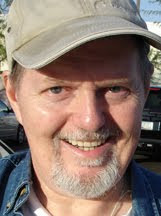
“Smart went crazy”, I recall, is the name of a short poem jointly written by Jack Kerouac and Allen Ginsberg when they were students. I think. “Smart” refers not to Leroy Smart, but Christopher Smart, a champion English poet of the 18th century. As recorded by Boswell in his. Life of Johnson, Smart was confined to an asylum, apparently having drunk himself to a state of dementia, and hence Kerouac/Ginsberg wrote: Smart went Crazy. Years later Ginsberg wrote his most famous line: “I saw the best minds of my generation destroyed by madness”. Smart went crazy- again.
Language (linguistic thought-forms) is/are inter-connected in ways we don’t always see- beneath the surfaces. We habitually see our universe as the surfaces of things: how the surfaces connect with other surfaces. One harbours suspicions (dare I boast certain knowledge?) that the world we know through our senses and reference with our word-thoughts is not the “Real” One. We see only results, after the fact.
What is occurring before that instant when thought-forms emerge into our viewscreen? Or after? Where do thoughts go to die? Where do the thought–forms live before they poke their heads up where we can see them? Where are thoughts born, how do they grow and mature, what sort of lives do they live before we meet them? How do these thought-forms manifest variously in languages which are often mutually unintelligible?
The Greeks were not inventing, when they spoke of the Muses. These scribes were describing the process accurately, that the artist does not so much as create what he does, he finds it- it is a gift, given to whomsoever the Muse Choose. Muse Choose the Blues. Baby, Baby, suck your toe, all the way to
I stayed up all night, last night, after viewing on You Tube a 1967 clip of Quicksilver Messenger Service performing Dino’s Song at the Monterrey Pop Festival that year. Quicksilver was too good to last, a band well-named: brilliant to behold, incapable of maintaining the same shape or form for very long, but impossible to quash.
“Dino” is Dino Valenti (born Chester Powers, died 1994), a champion song-catcher, one favoured by the Muse. I remember him as a champion performer, even if a jerk[1] at times. Numbers of the greatest songwriters of his generation hold Dino in highest regard. David Crosby claimed Valenti could write a great song in as much time as it took him to travel to the toilet and back. I looked up the name and found an account[2] of his method:
…"Every song is different," he says, "like every day; a completely different thing, man."
He explains: "You sit down and something turns you on and you hear a timbre, a vibration because you're right this instant turned on about something. And it's in your mind that you hear it. It may be soft, it may be fine, it may be heavy-it's just a certain set of tonalities, or sometimes it's just a set of chords that start going around your head…Well, you sit down and start to play it on your guitar and as you play the music, sometimes you hear the music has words …(to)[3] it. And so then you find out what the song says.
"Other times you're down and may be pissed about something so you write the words without bothering with the music; then you listen to the words over and over again and you hear the music. When a song starts you don't think about anything but getting next to it without breaking it. It's like getting next to a wild horse."
Bob Dylan, I recall, went on record saying he did not “write” his songs, but received them as a radio. In his Naropa lectures on folk music, Gary Snyder details how songs are “caught” by a visioner while on a special type of vision-quest. Most folk songs are variations on an old form, a traditional melody etc. Rhythms change with the times. Only rarely does a wholly new musical entity make itself available to the quester.
Check out Leonard Bloomfield’s big book of Language, also recommended by Snyder.
